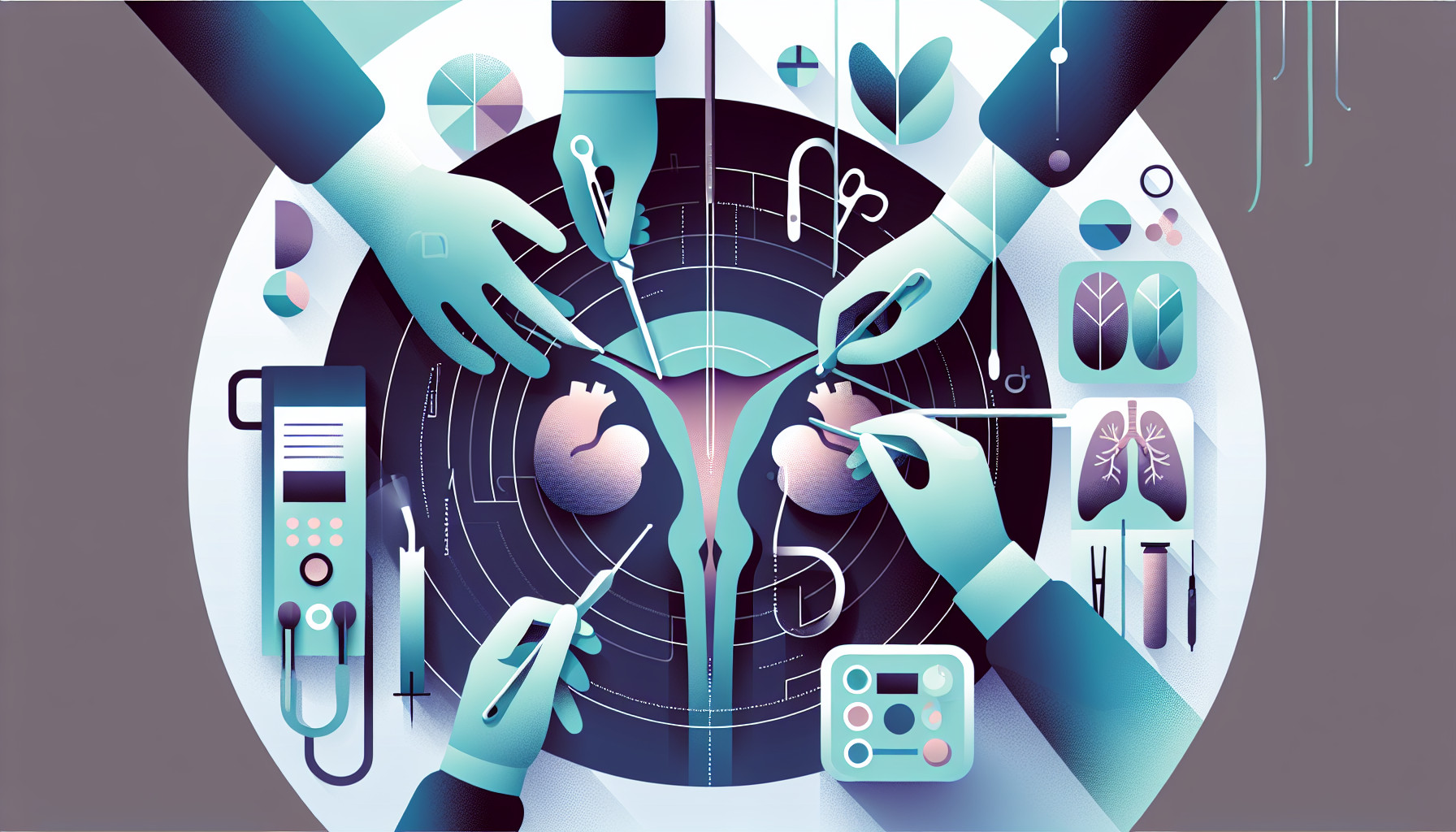Our Summary
This research paper studied whether women who had a hysterectomy (a surgery to remove the uterus) regretted their decision, and if their age at the time of the surgery played a role in this regret. They compared two groups: women who were 30 years old or younger when they had the surgery, and women who were between 31 and 49 years old.
The study found that younger women were more likely to regret having the surgery and the resulting loss of fertility. Specifically, about one-third of the younger women regretted the surgery, compared to about one-tenth of the older women. Also, about 40% of younger women regretted the loss of fertility, compared to about 13% of older women. Despite this, the majority of younger women still felt that the hysterectomy was the right decision.
The study also found that women who had ongoing pelvic pain, had endometriosis before the surgery, or had complications after the surgery were more likely to regret the surgery and the loss of fertility. Interestingly, the longer it had been since the surgery, the less likely women were to regret the loss of fertility. This was true regardless of whether the women had children before the surgery, had been sterilized before the surgery, or had received other treatments before the surgery.
FAQs
- What factors were found to increase the likelihood of women regretting their decision to have a hysterectomy?
- Does the age at which women undergo a hysterectomy impact their likelihood of regretting the loss of fertility?
- Did the study find any correlation between the length of time since the surgery and women’s feelings of regret over their hysterectomy?
Doctor’s Tip
One helpful tip a doctor might give a patient considering a laparoscopic hysterectomy is to carefully consider their age and future fertility desires before making a decision. Younger women may be more likely to regret the loss of fertility post-surgery, so discussing this aspect thoroughly with the healthcare provider and considering other treatment options may be beneficial. Additionally, discussing any ongoing pelvic pain, endometriosis, or potential complications with the doctor can help in making an informed decision about the surgery.
Suitable For
Based on these findings, laparoscopic hysterectomy may be recommended for patients who are experiencing ongoing pelvic pain, have endometriosis, or have other conditions that require removal of the uterus. It may also be recommended for patients who have already completed their family and do not wish to have any more children. Older patients may be less likely to regret the surgery and loss of fertility compared to younger patients. However, it is important for healthcare providers to discuss all potential risks and benefits of the surgery with their patients, regardless of age, to ensure that the decision is informed and tailored to the individual patient’s needs and preferences.
Timeline
Before the laparoscopic hysterectomy:
- Patient experiences symptoms such as heavy menstrual bleeding, pelvic pain, and abnormal uterine bleeding.
- Patient consults with a gynecologist to discuss treatment options, including medications, minimally invasive procedures, or surgical options.
- Patient undergoes pre-operative testing and evaluation to determine if they are a suitable candidate for a laparoscopic hysterectomy.
- Patient discusses the risks and benefits of the surgery with their healthcare provider and makes an informed decision to proceed with the procedure.
After the laparoscopic hysterectomy:
- Patient undergoes the minimally invasive surgery to remove the uterus through small incisions in the abdomen.
- Patient recovers in the hospital for a few days before being discharged home.
- Patient experiences post-operative pain, fatigue, and discomfort as they recover from the surgery.
- Patient follows up with their healthcare provider for post-operative care and monitoring.
- Patient may experience relief from their previous symptoms and improved quality of life following the surgery.
What to Ask Your Doctor
- What are the potential risks and complications associated with a laparoscopic hysterectomy?
- How will the surgery impact my fertility and hormones?
- Will I still experience menopause after the surgery?
- How long is the recovery process and what should I expect during that time?
- Are there alternative treatments or procedures that I should consider before opting for a hysterectomy?
- Will I need to take hormone replacement therapy after the surgery?
- How will the surgery affect my sexual function and libido?
- Are there any long-term effects or implications of having a hysterectomy at a younger age?
- Will I still need regular gynecological screenings after the surgery?
- What is the success rate of a laparoscopic hysterectomy in treating my condition?
Reference
Authors: King NR, Zeccola AM, Wang L, Harris JA, Foley CE. Journal: Obstet Gynecol. 2024 Dec 1;144(6):757-764. doi: 10.1097/AOG.0000000000005730. Epub 2024 Sep 19. PMID: 39601703
